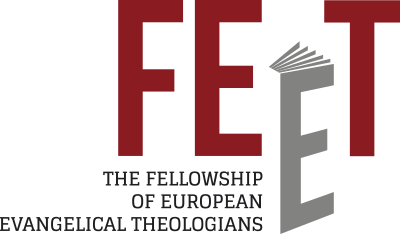Featured Author - Laura Dijkhuizen (EJT 31.2)
Laura Dijkhuizen is the Academic Dean of the School of Theology within the Foundation Academy of Amsterdam, an institution focusing on people with a migration background. She is also the vice-president of the Jethro Foundation and teaches basic theological education and church leadership to pastors in various African countries.
As a PhD candidate in the Faculty of Religion and Theology of the Vrije Universiteit, Amsterdam, she concentrates on gender roles within the leadership of Dutch Evangelical churches. Connected to her research, she is the current coordinator of the Religion and Gender Network in the Netherlands (REGENN) which connects scholars of religious studies and theology whose research focuses on issues relating to religion and gender, race/ethnicity, sexuality, age, class, etc. Here she introduces herself:
Imagine being 20 years old and a person in authority tells you that God does not want you to study because that would mean you are more educated (higher level of education) than your fiancée. That is what happened to me when I was a student at a charismatic evangelical Bible school some 35 years ago. I deregistered from the university, got married and started a family. This might seem an anecdote from another era, but the suggestion that a woman should arrange her life around the vocation or call of her husband is still very much alive in evangelical circles (and beyond) today.
My current doctoral research focuses on female leadership within the evangelical churches in the Netherlands. By evangelical, I mean Pentecostal, Baptist, Free Evangelical and Charismatic churches. In the Netherlands most evangelical churches practise a literal reading of the Bible regarding women in leadership. This results in low numbers of female pastors and elders, which is in contrast to comparable West-European countries. The focus of my research are theological, but even so important socio-cultural, factors for this low number, in a country and religious environment which is heavily influenced by secularism.
In the current issue of the European Journal of Theology, I describe the situation of the Evangelical Movement in general and zoom in on the impact of the congregational structure of the local communities. This is my second article in a series of five. The first one was published in the Journal of European Baptist Theology and focuses on my (ethnographic) research methods. The third will be published in a volume that concentrates on the inclusion and exclusion dynamics within religious communities, edited by Prof. Dr Bernhard Reitsma (Vrije Universiteit). In this third article, together with co-author Prof. Dr Jack Barentsen from the ETF in Leuven, Belgium, I describe a Free Evangelical church and a Baptist church that opened all offices to women and the process concerning the social identity of the church. Article four aims to clarify some interesting observations from the empirical research which make me wonder about the relationship between gender roles and the gospel, being good news. I am still struggling with this one.
Doing doctoral research besides work and my dynamic family is challenging, as many of you will quite understand. I am much indebted to wonderful colleagues, research groups and networks like FEET which are encouraging, enriching and stimulating. Thank you for this opportunity to share a piece of my work and for the fellowship we are experiencing together.
For more about my work and publications, visit: https://research.vu.nl/en/persons/laura-dijkhuizen.
